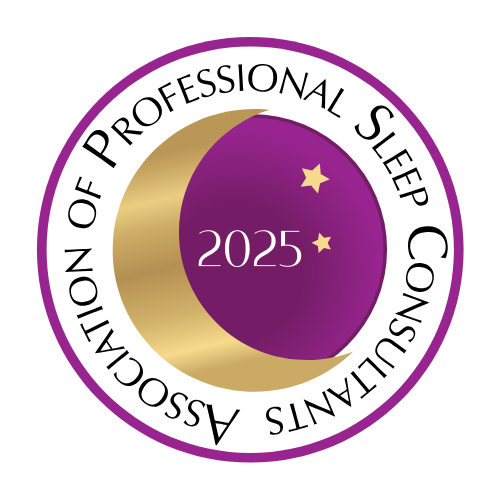Baby sleep patterns
Author Name: Heidi Holvoet, PhD
Baby
sleep
patterns tell us how and how much
our baby sleeps, and
can
sleep.
The natural
patterns develop rapidly in the first six months and take
up to 4 years to become adult-like. It's is an amazing development
from
newborn towards childhood and adult sleep patterns
.
By offering the right environment we can
guide
our children towards optimal
sleep habits.
Typical Baby Sleep Patterns by Age
The difference between adult and baby sleep patterns
As we know - and
experience ... -Â a baby is not born with
matured sleep patterns adapted to the day and night cycle of our adult
lives.
The
key differences
between baby and adult sleep
are:
- A baby spends more time in light sleep
- A baby's sleep cycles are shorter (basically half-waking up every 45-60 minutes)
These difference are huge and explain so much of what we see
in our
babies:
waking up easily
(due to light sleep) and
frequently
(light sleep and physically waking up every 50 minutes).
Not all babies wake up every 50 minutes of course, some can go on
sleeping easily without waking up completely - that is
the
difference between good and poor sleepers
.
Only around 6 months old does a baby start sleeping deeper and it takes
a couple of years for the 50-minute cycle to grow towards the adult
90-minute cycle.
What kind of sleep can you expect, realistically, from your baby?
Newborn
sleep patterns:
a newborn has short sleep-wake cycles
throughout the day, with no difference between day and night. Her sleep
is mostly light (easily waking up). The newborn sleeping schedule is
governed by regular feeding needs.
Her sleep develops rapidly and you can help instill the day-and-night
rhythm
with a clear difference between your day (active and light) and night
routine (quiet and dim).
1 - 6
month old:
Sleep continues to mature
rapidly and your baby gradually moves into sleeping more at night than during
the day.
Feeding is still an important and often necessary trigger for
waking up.
6
months - 2 year old:
Your little one's sleep has
changed dramatically in the first six months and she can now finally
find a deeper sleep.
She will be awakened less easily and therefore is
able to do longer stretches little by little.
Notice the 'is able to': at this age, other factors besides food enter
your child's life:
there is the awareness of needing mom/dad,
separation
anxiety
,
teething
,
developing important motor skills,
and so on/
Let the natural patterns help
Rather than trying to break or interfere with your baby's sleep patterns, your best bet is to reinforce and guide the natural ones in the right direction. Here's what we can learn:
-
Expectations
:
Sleeping well is a skill that needs time to develop. Knowing that poor
baby sleep is most probably due to physical immaturity, gives
you
realistic expectations.
Expecting your newborn to sleep through the night from the first weeks is not realistic. Please don't feel frustrated when you hear stories from babies who do: they honestly are exceptions (and even more likely untrue). Also, parents who realize they shouldn't expect too much, often report the best sleep results.
The baby sleeping through the night myth
The
term sleeping through the night is often overrated.
Officially,
sleeping through the night starts from 5-6 hours. This could be from 9pm till
3am: still a mini-night in adult terms!
Most babies actually do
this around the age of six months, not consistently at first and it may
take another while before they make longer nights consisently.
-
Accepting
:
Knowing what you can expect reasonably, can help you accept
your baby's sleeping. Yes, I know this may not be the help you're
looking for: but I don't mean it in a crude
"you
just need to accept it"
way.
It's just that allowing yourself to accept it to a certain point, can help you relax, which will make you rest and feel better and make you stronger when coping with your baby's nightly troubles. -
Better
times ahead!
The best outcome when looking at sleep
patterns: her sleeping skills may not seem impressive to you at first
but
it's a fact that they develop very rapidly!
So you can count on improvement, most likely within weeks if not days. - What to do : help reinforce the good parts of baby's sleep patterns:

-
Offer
a balanced and clear daily routine.
Being
active
when
you are and
quiet
when you are, will help your baby in developing sleep-wake patterns
similar to yours.
From the first day, include baby in your day - for example take her shopping, go for a walk, she plays or sits on your lap while you work, etc. - Recognize sleepy signs and arrange a recognizable but flexible sleep schedule around that.
- Use active-quiet and light-dark cues to reinforce day and night difference, from the very first days and also as your baby grows. These cues are what's most effective in helping establish appropriate wake/sleep rhythms.
-
Encourage regular naps
.
Even if your baby is not sleeping regularly (day or night) yet, set the
good habit of consistent naps early on. It will only improve her mood
during the day as well as her night time sleep. For a step-by-step
guide to a good nap routine (timed, pattern or free), see
No Tears Naps (aka "Nap in a Snap")
.
Baby's
sleep patterns are interesting to help understand why so many babies
do not sleep like parents would want them to:
sleeping simply is a skill that takes
time to develop
.
Luckily we can guide our little loved ones in the right direction.
Article Author: Heidi Holvoet, PhD - Founder, senior sleep consultant

Heidi Holvoet, PhD, is the founder of the Baby Sleep Advice website and movement, an award-winning author, baby & toddler sleep consultant with 15+ years experience as well as a certified lactation counselor.
Over the years, Heidi has received several awards inluding a Mom's Choice Award (MCA) and National Parenting Awards (NAPPA) for her Baby Sleep Advice website, programs and books. Also, Baby Sleep Advice was awarded "Most Trusted Infant's Sleep Solutions Company 2023" in the Benelux Enterprise Awards 2023.
Heidi continually conducts personal research and participates in continued education and in that way stays up to date with current scientific and pyschosocial infant care.

She is also a member of the Association of Professional Sleep Consultants of which she was one of the earliest contributors. She obtained her PhD degree in physics at the University of Ghent in Belgium.
Heidi is passionate about helping babies and their parents sleep more and better, with her trademark approach that has been proven and praised time and again by parents worldwide to be effective and truly no-tears. Respect for you as a parent and your baby, is at the heart of Heidi's warm and kind support. Her approach always keeps in mind a baby's needs and abilities at any given age, is based on pediatric science and the most up to date knowledge in infant care and sleep science.
As well as the award-winning baby sleep programs, Heidi offers popular 1:1 consults and easy-access 30-minute SOS Sleep sessions.

Baby waking every hour?
by Heidi Holvoet, PhD

Sleep schedules by age
by Heidi Holvoet, PhD

Separation Anxiety
by Heidi Holvoet, PhD

Crib safety guidelines
by Heidi Holvoet, PhD

Why does my baby wake up every hour?
by Heidi Holvoet, PhD


